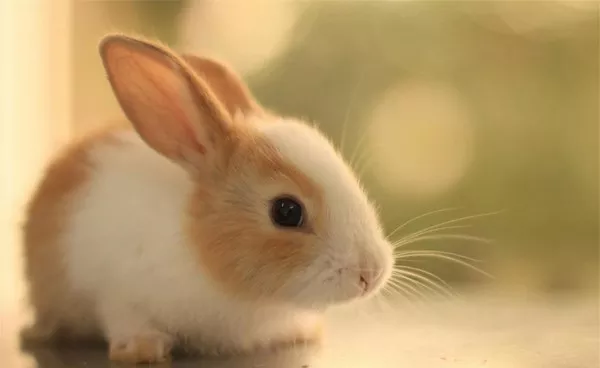Caring for a young bunny involves more than just providing a cozy hutch and affectionate cuddles. Proper nutrition is a crucial aspect of ensuring the health and well-being of these adorable creatures. In this guide, we will explore the best practices for feeding a young bunny to support their growth and development.
Understanding the Nutritional Needs of a Young Bunny
Young bunnies have specific nutritional requirements that differ from those of adult rabbits. It is essential to comprehend these needs to tailor their diet accordingly. Providing a well-balanced and age-appropriate diet is key to promoting optimal health in young rabbits.
What is the Best Food for Young Rabbits?
Selecting the right food for a young bunny is the foundation of their nutritional well-being. A high-quality pellet formulated specifically for young rabbits serves as an excellent base for their diet. Look for pellets that contain a balance of essential nutrients, including fiber, protein, and vitamins. These pellets are designed to meet the specific needs of a growing bunny, supporting their bone development and overall health.
What Can I Feed a Baby Bunny?
While pellets are a staple, a young bunny’s diet should also include a variety of fresh hay. Hay is crucial for dental health and provides the necessary fiber for proper digestion. Offer a mix of grass hay, such as timothy or orchard grass, to ensure your baby bunny gets the required nutrients. Introduce fresh vegetables gradually, starting with leafy greens like kale and romaine lettuce. Avoid giving too many high-starch or high-sugar vegetables initially, as they may be harder for young bunnies to digest.
Feeding Schedule for Young Bunnies
Establishing a consistent feeding schedule is vital for the health and well-being of a young bunny. Aim to provide fresh pellets daily and ensure a constant supply of hay. Introduce vegetables gradually, starting with small amounts a few times a week. Monitoring your young bunny’s weight and adjusting their diet accordingly will help maintain optimal growth.
What Do You Feed a 1-Year-Old Rabbit?
As your bunny transitions from a baby to a 1-year-old, adjustments to their diet become necessary. While pellets remain a crucial part of their nutrition, gradually transition to an adult rabbit pellet formula. Continue to offer a variety of fresh hay and expand the selection of vegetables to include a broader range of options. Ensure that your 1-year-old bunny has access to fresh water at all times to stay hydrated.
See Also: Hay – The Most Important Part Of Your Rabbit’s Diet!
Balancing Treats for Young Bunnies
Treats can be a delightful addition to a young bunny’s diet but should be given in moderation. Opt for treats that are specifically designed for rabbits and are high in fiber. Fresh fruits, such as apple slices or strawberries, can be offered as occasional treats. Avoid sugary treats and remember that treats should constitute only a small percentage of their overall daily food intake.
What Age is Young Rabbit Food For?
Young rabbit food is formulated for rabbits from birth to around six months of age. During this crucial growth period, a young bunny’s nutritional needs are distinct from those of adult rabbits. As your bunny reaches the age of six months, it’s time to transition to an adult rabbit diet to ensure they continue to receive the appropriate balance of nutrients.
Ensuring Hydration for Young Bunnies
Proper hydration is just as important as a balanced diet for a young bunny. Make sure your bunny has access to clean, fresh water at all times. You can provide water in a sipper bottle or a heavy, shallow bowl to prevent tipping. Hydration is crucial for digestion, temperature regulation, and overall well-being.
Consulting with a Veterinarian
Regular check-ups with a rabbit-savvy veterinarian are essential for monitoring the health of your young bunny. A vet can provide guidance on nutrition, identify any potential health issues, and recommend appropriate supplements if needed. It’s important to address any concerns or questions you may have about your young bunny’s diet and overall well-being with a qualified professional.
Conclusion
Feeding a young bunny requires a thoughtful approach and a commitment to meeting their specific nutritional needs. From selecting the right pellets and introducing hay and vegetables to maintaining a consistent feeding schedule, every aspect of their diet plays a role in their growth and well-being. By understanding and catering to the unique needs of young rabbits, you can ensure that your furry friend enjoys a healthy and happy life.
Related Topics:
Alfalfa Hay for Rabbits v Grass Hay – The Little Hay Company
The Dangers of Unsafe Foods for Rabbits
The Herbivorous Delight: Do Rabbits Eat Grass?
























